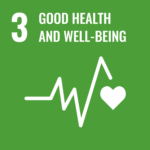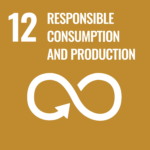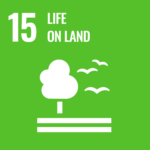Recycled methane-to-biodegradable plastics
Biotransformation of flared natural gas and landfill gas to polyhydroxybutyrate (PHB), biodegradable and other commodity chemicals using methanotrophs
Methane-containing landfill waste gasses are produced, for example, by the biodegradation of organic substances (e.g. food waste). Flared natural gas is a by-product of crude oil extraction and is generally not processed further due to its inefficiency. Although the flaring of natural gas has been banned by law in Nigeria since 1984, the country is one of the ten nations with the highest flaring rate.[1] The resulting methane emissions have immense environmental, economic and health impacts. Gas flaring in the Niger Delta harms agricultural productivity, increasing soil temperature, reducing crop yields, and causing acid rain. [2, 3] Health consequences include air thick with toxic pollutants, particulate matter levels two to four times higher than WHO recommendations, burns, health complications for women nearby, and high birth defect rates. [3, 4] Six students from the University of Nigeria Nsukka will address this issue not only by avoiding these devastating emissions by recycling the methane, but also by producing a valuable product (PHB) from it. The students will obtain their methane from the Niger Delta region, where there are over 144 flaring sites. In the second step, this methane is further processed into the product PHB. PHB is a biodegradable polymer that is synthesized through bacterial fermentation processes. For this project, this means that bacteria metabolize methane (=methanotrophs), producing PHB. Thanks to its properties, which are similar to those of the conventional polymers polypropylene (PP) and polyethylene (PE), PHB has a wide range of applications. PHBs are used in medicine, the packaging industry, nanotechnology and agriculture, among others.[5] Biopolymers such as PHB are becoming increasingly important, as up to 12% of global petroleum production is used for petrochemically produced plastics (as of 2020).[6] The project simultaneously prevents methane emissions from landfills as well as gas flaring and reduces the production of conventional plastics, thereby promoting a circular economy in Nigeria.
Quellen:
[1] International Climate Change Development Initiative Africa; #EndGasFlaringNG: The Unspoken Dangers of Gas Flaring In Nigeria – by @mista_blak. – Medium 2020.
[2] Eboh; Nigeria: Despite Paucity of Funds, Nigeria Flares N461bn Gas in 2019. – AllAfrica 2019.
[3] Uchegbulam et al; Sustainable Environment: A Comprehensive Evaluation of the Effects of Gas flaring in the Niger Delta, Nigeria. – Journal of Applied Sciences and Environmental Management 2022.
[4] Abbey et al; Prevalence and pattern of birth defects in a tertiary health facility in the Niger Delta area of Nigeria. – International Journal of Women’s Health 2017.
[5] McAdam et al.; Production of Polyhydroxybutyrate (PHB) and Factors Impacting Its Chemical and Mechanical Characteristics. – Polymers 2020.
[6] Sirohi et al.; Critical overview of biomass feedstocks as sustainable substrates for the production of polyhydroxybutyrate (PHB). Bioresource Technology 2020 .
Facts
- Country: Nigeria
- Region Nigerdelta
- Project abbreviation: NGA-001
- Project start / project end: June 2024 - May 2025
- Project budget: 12.000 €
- Donors: Innovation & Zukunft Stiftung, Cordes & Graefe Stiftung
- Scholarship per person: Scholarship per Student: 773,435,96 NGN
- University: University of Nigeria Nsukka
- Number of students: 6 students, 3 bachelor, 3 master (3 female)
- Supervisor: Dr. Chioma Onyetugo Amadi
- 3E4A-Coordinator: Soukaina Skribbe
- Local partner: Stand Out For Environment Restoration Initiative, Nigeria
SDGs
Primary SDGs
Team
Chidozie
Luke Okafor
Chizimuzor
Nadia Iloka
Egbuchulem
Olive Chinezerem
Ani
Angela Chinasa
Job
Aleke
Mmesomachi
Sylvia Mbaji
Supervisor
Prof.Onyetugo
Chioma Amadi


